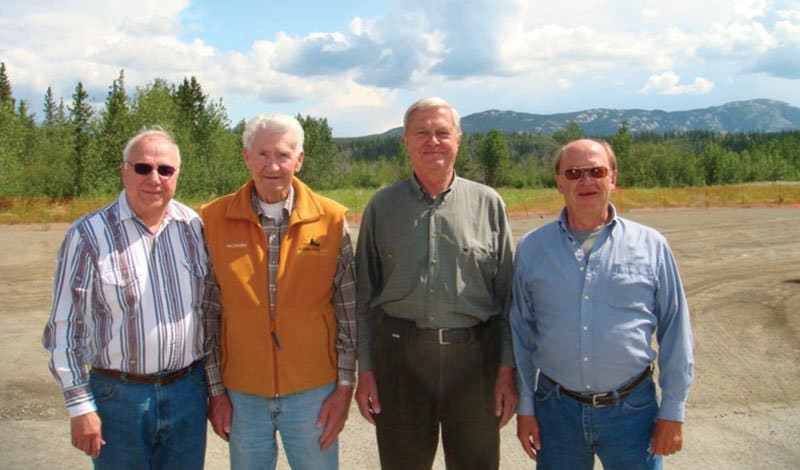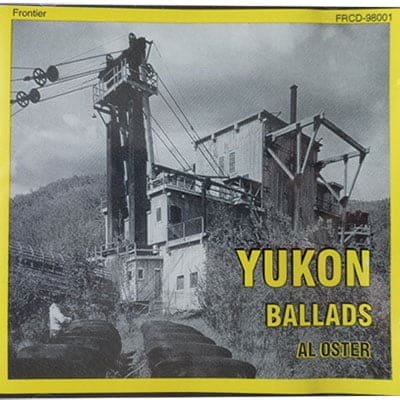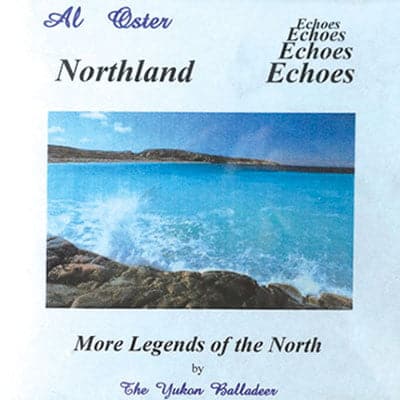Al Oster plays in Hougens in 1961 – PHOTOS: courtesy of Rolf Hougen
This article uses information and content shared by Rolf Hougen from the HougenGroup.com website to commemorate Al Oster.Our Yukon heritage is a mix of different traditions and different eras, including First Nations history, gold rush stories, the construction of the Alaska Highway and the evolution to the current day. The Yukon’s magic has captured the imagination of many storytellers and artists over the years, but one of the finest was Al Oster, the Yukon balladeer and 1999 Order of Canada recipient.Oster passed away this past October in Salmon Arm, B.C. at the age of 92. He lived in the Yukon until 1975. As we celebrate the Klondike Gold Rush during Yukon Sourdough Rendezvous and the many Yukon histories during Heritage Day, it’s a good time to recognize his work to chronicle the Yukon.He first visited Whitehorse in June of 1957, drawn by the tales of Yukon’s colourful stories and people. Like many before him, the spell of the Yukon captured his imagination and he convinced his wife, Mary, to seek a new adventure as a family in the Yukon that summer.Having written ballads since he was a child, he naturally started writing songs about his new home and by 1961 had a collection of Yukon songs. During this time his band played regularly on the weekends at the Kopper King and the Bamboo Lounge (which later became the Roadhouse Pub) and a group comprised of Vancouver-based Jack Doell, Ed Isaac, Grant Wilson and Oster developed the Yukon Gold Show Tour that went on tour in northern Alberta and across the North.
His music even saw some commercial success with the song “My Book of Yukon Memories” reaching number 30 on the Billboard charts. As well, “Waltz of the Yukon” is included in the Boy Scout and Girl Guide camp “sing along” song book.“My Book of Yukon Memories” was written from the heart according to Oster. “It still creates a feeling of ‘longing’ when I sing or hear it. The music and lyrics came so easily,” he said for a CKRW “Yukon Nugget” recording.However, Oster’s most famous song is arguably “Paddlewheeler,” which immortalizes boats that floated up and down the Yukon River and served as the key transportation for the territory prior to the construction of the Alaska Highway.“Paddlewheeler” was special to Oster and gained popularity due to the flow of its lyrics. “It’s an easy song to memorize and sing,” he said for a CKRW “Yukon Nugget.”Oster is one of the Yukon’s musical artists who captured our history of the gold rush and feeling of wonder that we all share in the territory. His music will always be a part of our heritage.







